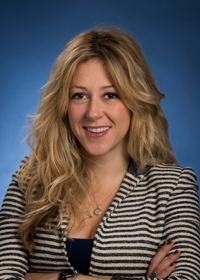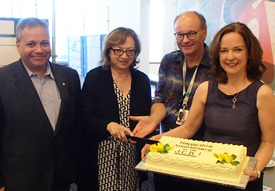From: Karen Devon, Attending Surgeon, Women’s College Hospital and University Health Network
 “Does this 80 year-old patient understand a Whipple operation (pancreatic cancer resection)?” “My patient does not have a genetic predisposition, but she is requesting bilateral mastectomies. What should I do?” “I don’t think my patient’s surrogate decision maker is really acting in his best interest. What are my options?” Surgeons deal with ethical challenges daily, as they obtain consent to perform complex operations, implement innovations, disclose errors, or interact with surrogate decision-makers. Communication breakdowns between physicians, patients, nurses, and other providers can result in decreased quality of care.
“Does this 80 year-old patient understand a Whipple operation (pancreatic cancer resection)?” “My patient does not have a genetic predisposition, but she is requesting bilateral mastectomies. What should I do?” “I don’t think my patient’s surrogate decision maker is really acting in his best interest. What are my options?” Surgeons deal with ethical challenges daily, as they obtain consent to perform complex operations, implement innovations, disclose errors, or interact with surrogate decision-makers. Communication breakdowns between physicians, patients, nurses, and other providers can result in decreased quality of care.
Ethics education can prepare trainees for complex cases by teaching them to clarify values and contexts, and to listen and communicate effectively.1 A review of empiric studies on surgical ethics education2 highlighted two overarching goals: (1) cultivating virtuous physicians and (2) teaching skills for the recognition and management of ethical quandaries that develop in the ordinary course of patient care. Deficiencies have been noted in the formal education of surgical residents in processes of moral reasoning.3,4 While there is an expectation of competency in ethics at the completion of training, the educational curriculum has not guaranteed that surgical residents will be trained in how to approach these issues. This creates a void in the process of education that will affect their careers. Recently, interviews and focus groups have shown that ethical issues tend to be relegated to the “hidden curriculum” of surgical training, but when they are presented formally, they gain significance and their value becomes identifiable to the learner.5 However, a preoccupation with scientific and technical aspects of care, time constraints, a lack of faculty support, and a tendency to view ethics as peripheral to the learning agenda have been listed as barriers.3 Yet, when ethical issues are presented in a formal way through case-based learning, they gain significance and become identifiable to the learner as an important component of clinical training.3-5 Surveys suggest that the ideal method for ethics education is by case-based learning.3,4
Morbidity and mortality conference is a time honoured and well attended tradition in the culture of surgery. It is a powerful source of learning from retrospective peer review and analysis of outcomes. Ethics quality of care rounds (known by the residents as Ethics M&M’s) was launched in the UHN Division of General Surgery in 2012. These were based on rounds I attended at the University of Chicago as a clinical ethics fellow. Since then, with the support of the AMS Phoenix Project the rounds have been championed as a regular part of the surgical curriculum in the Divisions of General Surgery at Mount Sinai Hospital, St. Michael’s Hospital, The Hospital for Sick Children and Toronto East General Hospital. The once monthly case-based discussions are part of regularly scheduled morbidity and mortality rounds, and these presentations challenge the long-standing hidden curriculum in surgical culture, and help address existing barriers in practice and education. For example, a discussion on required reconsideration of DNR status when bringing a patient to the operating room can lead to a change in workplace practices, such as a new policy addressing an existing gap at the hospital level through inter-professional collaboration.
Even more exciting however than tangible policy change is the informal feedback. Residents tell us that a cultural change occurs as a result of open, case-based ethics discussions, resulting in more appropriate and compassionate patient care. We hope that future expansion of these rounds throughout the Department of Surgery will have a transformative effect in resident learning around ethics and professionalism. Ryan Snelgrove, a surgical fellow will be the impact of Ethics M&M through a grant from the Arnold P. Gold Foundation grant entitled: “Transformative learning through ethics quality of care rounds.” We have begun to identify interested institutions to help expand these rounds nationally and internationally. M&M rounds form one of the oldest surgical traditions. Traditions evolve over time, and our aim is that someday the tradition of the M&M will include hundreds of hours of new ethics discussions that support reflective practice, integrity, and societal responsibility in surgical care.
I would like to acknowledge the AMS Phoenix Project and Martin McKneally for their support of this initiative as well as the following members of the Division of General Surgery for being active local champions: Drs. Paul Bernick, Sav Brar, Annie Fecteau, Ralph George, Allan Okrainec, Lorne Rotstein, and Carol Swallow.
- Kodner IJ. Ethics curricula in surgery: Needs and Approaches. World J Surg. 2003;27:952-6.
- Helft PR, Eckles RE, Torbeck L. Ethics education in surgical residency programs: A review of the literature. J Surg Educ. 2009;66:35-42.
- Downing MT, Way DP, Caniano DA. Results of a National Survey on Ethics Education in General Surgery Residency Programs. Am J Surg. 1997;174:364-8.
- Grossman E, Posner MC, Angelos P. Ethics education in surgical residency: Past, present, and future. Surgery. 2010;147:114-9.
- Howard F, McKneally MF, Upshur RE, Levin AV. The formal and informal surgical ethics curriculum: views of resident and staff surgeons in Toronto. Am J Surg. 2012;203:258-65.


